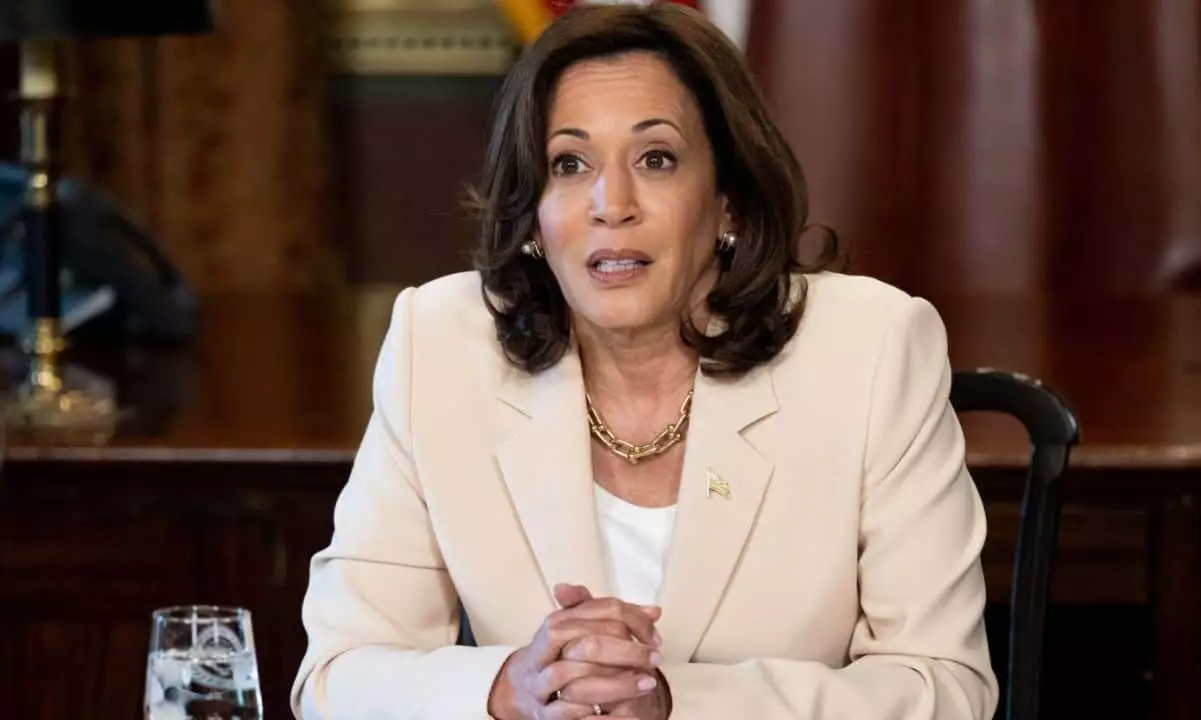The world of digital assets has become a battleground for political posturing, and U.S. Vice President Kamala Harris has recently stepped into this fray. Announced on October 14, Harris’s commitment to support digital asset policies that specifically aim to protect crypto investors—especially black men—raises several pivotal questions. Is this a genuine effort to empower marginalized communities, or merely a strategic move to capture votes in the upcoming presidential elections?
The significance of the digital asset market cannot be overstated; it has offered new avenues for financial inclusion, particularly for historically underrepresented groups. With 20% of black Americans reportedly owning or having owned cryptocurrency, the potential for these technologies to serve as a catalyst for economic empowerment is immense. Harris’s pledge to create a regulatory framework caters specifically to this demographic, presenting it as an avenue for addressing the long-standing disparities in access to banking and financial services.
However, analyzing the content and depth of this pledge reveals ambiguities. While acknowledging the groundbreaking role of digital assets, Harris’s campaign refrains from detailing what this framework would entail. What specific protections will be afforded to crypto investors? How will this regulatory approach be different, or more favorable, than previous ones? Without concrete answers, the promise feels more like a call to arms than a clearly defined path forward.
Critics have swiftly pointed out the lack of substantial detail in Harris’s proposal while attaching significant importance to her rhetoric. It’s noteworthy that she failed to mention vital terms associated with the crypto industry during her speeches, such as “blockchain” and “digital assets,” causing skepticism about her grasp of the subject matter. This oversight has not gone unnoticed by observers and critics alike. For example, Bitcoin Magazine’s Nikolaus Hoffman has labeled Harris as “the worst candidate for Bitcoin,” suggesting her racial focus undermines the broader potential of crypto advocacy.
On the other hand, Republican rival Donald Trump has made headlines for his newfound alignment with the crypto community. Trump’s recent declaration of himself as the “Crypto President,” alongside his specific plan to implement friendlier regulations and establish a Bitcoin advisory council, offers a striking contrast to Harris’s more vague promises. While Harris’s campaign seems to bring race into the conversation, Trump appears to be banking on an intersection of economic growth and widespread crypto adoption, regardless of racial considerations.
The matter of regulation in the digital asset space is convoluted. Harris’s existing ties to the Biden administration, particularly through SEC Chairman Gary Gensler—widely viewed as antagonistic toward crypto—further complicate her position. Many in the crypto community perceive significant regulatory overreach from the current administration, leading to a landscape that is more cautious than inviting. The juxtaposition of Harris’s newly proposed framework with the past actions of the SEC raises doubts. If her party’s prevailing sentiment toward crypto has been skeptical, can her new pledge truly facilitate a change in approach?
Moreover, the notion of creating a regulatory environment that specifically focuses on the protection of black men could be both empowering and exclusionary, depending on its execution. While focusing on a targeted demographic may intend to address financial inequalities, it risks alienating other groups who also stand to benefit from supportive regulatory measures. A truly inclusive policy would recognize that financial empowerment through digital assets is not limited to one racial or gender group.
Vice President Kamala Harris’s proposals surrounding digital asset regulation bring essential conversations to the forefront but must move beyond platitudes to warrant genuine confidence. A political engagement that acknowledges the historical context of financial exclusion while providing a clear roadmap for actionable policy will be crucial in determining the effectiveness of her pledge. As the cryptocurrency ecosystem continues to evolve, it’s imperative that leaders from both sides of the aisle not only offer supportive rhetoric but also work collaboratively towards frameworks that safeguard all investors and promote equality in this emerging financial landscape.















